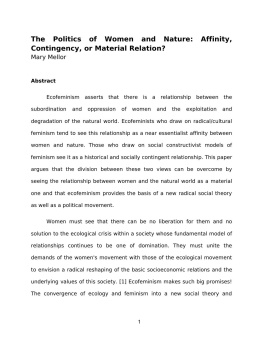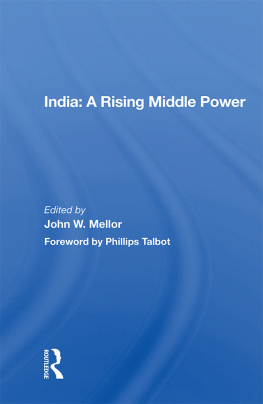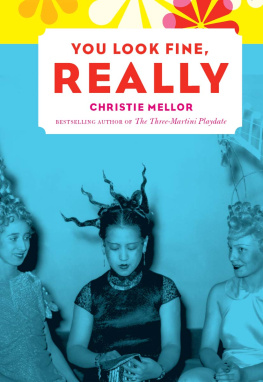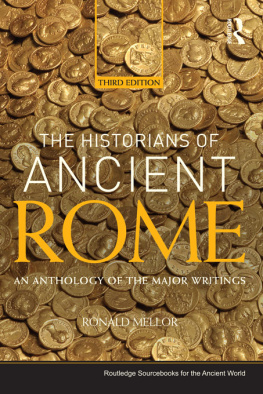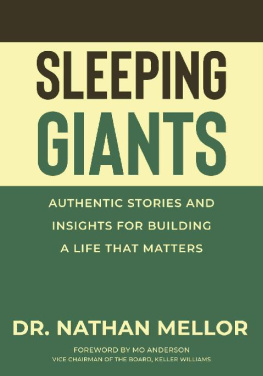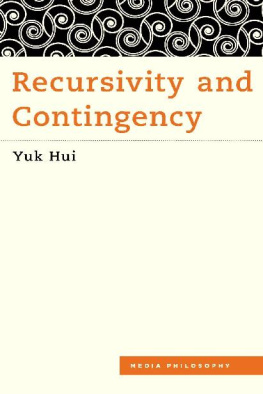Mary Mellor - The Politics of Women and Nature: Affinity, Contingency, or Material Relation
Here you can read online Mary Mellor - The Politics of Women and Nature: Affinity, Contingency, or Material Relation full text of the book (entire story) in english for free. Download pdf and epub, get meaning, cover and reviews about this ebook. genre: Politics. Description of the work, (preface) as well as reviews are available. Best literature library LitArk.com created for fans of good reading and offers a wide selection of genres:
Romance novel
Science fiction
Adventure
Detective
Science
History
Home and family
Prose
Art
Politics
Computer
Non-fiction
Religion
Business
Children
Humor
Choose a favorite category and find really read worthwhile books. Enjoy immersion in the world of imagination, feel the emotions of the characters or learn something new for yourself, make an fascinating discovery.
- Book:The Politics of Women and Nature: Affinity, Contingency, or Material Relation
- Author:
- Genre:
- Rating:4 / 5
- Favourites:Add to favourites
- Your mark:
- 80
- 1
- 2
- 3
- 4
- 5
The Politics of Women and Nature: Affinity, Contingency, or Material Relation: summary, description and annotation
We offer to read an annotation, description, summary or preface (depends on what the author of the book "The Politics of Women and Nature: Affinity, Contingency, or Material Relation" wrote himself). If you haven't found the necessary information about the book — write in the comments, we will try to find it.
Mary Mellor: author's other books
Who wrote The Politics of Women and Nature: Affinity, Contingency, or Material Relation? Find out the surname, the name of the author of the book and a list of all author's works by series.
The Politics of Women and Nature: Affinity, Contingency, or Material Relation — read online for free the complete book (whole text) full work
Below is the text of the book, divided by pages. System saving the place of the last page read, allows you to conveniently read the book "The Politics of Women and Nature: Affinity, Contingency, or Material Relation" online for free, without having to search again every time where you left off. Put a bookmark, and you can go to the page where you finished reading at any time.
Font size:
Interval:
Bookmark:
The Politics of Women and Nature : Affinity , Contingency , or Material Relation ?
Mary Mellor
Ecofeminism asserts that there is a relationship between the subordination and oppression of women and the exploitation and degradation of the natural world . Ecofeminists who draw on radical / cultural feminism tend to see this relationship as a near essentialist affinity between women and nature . Those who draw on social constructivist models of feminism see it as a historical and socially contingent relationship . This paper argues that the division between these two views can be overcome by seeing the relationship between women and the natural world as a material one and that ecofeminism provides the basis of a new radical social theory as well as a political movement .
Women must see that there can be no liberation for them and no solution to the ecological crisis within a society whose fundamental model of relationships continues to be one of domination . They must unite the demands of the women ' s movement with those of the ecological movem ent to envision a radical reshaping of the basic socioeconomic relations and the underlying values of this society . [1] Ecofeminism makes such big promises ! The convergence of ecology and feminism into a new social theory and political movement challenges gender relations , social institutions , economic systems , sciences , and views of our place as humans in the biosphere . [2]
The emergence of ecofeminism as a movement more than 20 years ago was based on th e claim that there is a connection between the exploitation and degradation of the natural world and the subordination and oppression of women . Ecofeminism emerged alongside the radicalization of second wave feminism and the deepening of the green movement . Like the deep ( er ) green movement it takes a view of the natural world ( including humanity ) as interconnected and interdependent and shares with radical feminism a view of humanity as systematically gendered in ways that subordinate , exploit and oppress women . Ecofeminists see gender inequality as resulting in a relationship between humanity and the natural world in which women and men are differently located . The definition of ecofeminism as an ideology depends upon how the connection between women and nature is identified and explained and the political conclusions that are drawn .
Within ecofeminism two approaches to the connection between women and nature can be identified . [3] The first is a direct affinity , a physiological or psychic connection . Women understand nature through their physiological functions ( birthing , menstrual cycles ) or some deep element of their personalities ( life - oriented , nourishing / caring values ). This version of ecofeminism draws heavily on radical / cultural feminism and can be seen as ideological in the sense of promoting the particular and exclusive interests / values of women . Men by definition are not only excluded , they are the enemy . The second approach sees the connection between the oppression of women and the exploitation of the natural world as contingent . The juxtaposition of the subordination of women and nature has occurred at a particular historical juncture , western patriarchal capitalism / industrialism . If women understand ' nature ' it is because of their common experience of exploitation . Ecofeminists who take this perspective often draw on social ( i . e . anarchist ) or socialist feminism . [ 4]
The main difference between these two groups lies in their discussion of the causes and / or origins of women ' s subordination and the nature of women ' s connection to the natural world . Affinity ecofeminists tend to stress the differences between men and women and focus on the relationship between women and nature , often based on women ' s bodies , culture or ' nature '. Social / ist ecofeminists tend to stress inequalities in society that affect both women and the natural world . The relationship between women and nature is an indirect one , and male - domination , although central to their analysis , is seen as a social rather than a natural phenomenon . Contingency ecofeminists tend to stress a moral / ethical approach to politics , the use of women ' s perspectives to expound an alternative world view that others can embrace . [ 5] In this sense contingency ecofeminism is ideological in the sense used by Andrew Dobson to describe ' ecologism ', as an alternative framework for understanding the world and developing political action with it . [ 6] However , the idea of contingency within ecofeminism is a strong , rather than a weak one as Plumwood argues , it points to ' structure not coincidence '. [ 7] Moving towards a structural analysis leads us away from the conception of ecofeminism as purely ideological in either of the first two senses and towards its potential as an explanatory account of the relations between humanity and non - human nature as reflected in the material relations between men and women [ 8] This approach to ecofeminism grows out of the first two rather than being of a different order . Often within a single author elements of an ideological approach ( in both senses ) lie alongside an analysis of the socioeconomic position of women :
Women ' s values , centred around life - giving , must be revalued , elevated from their once subordinate role . What women know from experience needs recognition and respect . We have generations of experience in conciliation , dealing with interpersonal conflicts daily in domestic life . We know how to feel for others because we have been socialised that way . [ 9]
Judith Plant starts from an assertion of women ' s affinity , their values centred around lifegiving . She then turns to their experience and argues for others to recognize and respect women ' s values ( and presumably share them ). Finally she points to a social explanation for women ' s values and experience , socialization .
Ecofeminism therefore offers us a far from clear - cut political position . As Stephanie Lahar points out it is both a social theory and a political movement . I would want to argue that ecofeminism has considerable potential for both , as it matures as a movement and as an analysis .
Ecofeminism emerged in the early 1970 s alongside the radicalization of feminism and the launch of the ecology movement . In this sense it was not a child of the feminism and ecology movements , rather a first cousin to both . The emergence of radical feminism was signalled by the publication of texts such as Shulamith Firestone ' s Dialectic of Sex and Kate Miller ' s Sexual Politics in 1970. The emergence of the green movement was heralded by the formation of the world ' s first green party in Tasmania ( the United Tasmania Group ) in March 1972 followed closely by the Values Party in New Zealand in May 1972. The Ecology Party ( now the Green Party but originally named the People party ) was formed in Britain in early 1973. The MIT Limits to Growth study was published in 1972 [ 10] in the same year as Arne Naess launched the deep ecology movement when he made his distinction between deep and shallow ecology . Naess called for an ecosophy , an Earth - based wisdom that recognized the complexity , diversity and symbiosis inherent in the natural world . [ 11] Ecofeminism did not draw directly on Naess ' s ideas but it tended towards a ' deep ' approach to the natural world either in terms of a radical cosmology of human - nature relations or in terms of a socialist critique of the impossibility of ' greening ' a global capitalist economy .
Ecofeminism is generally claimed to have been ' named ' by a French feminist , Francoise d ' Eaubonne in 1974. [ 12] This is disputed by Janet Biehl , of the Institute for Social Ecology in Vermont , in the US . She claims that ecofeminism was first developed in the context of the eco - anarchist Murray Bookchin ' s social ecology as ' social ecofeminism ' by Chiah Heller also in 1974. [ 13] However Barbara Holland - Cunz and Ariel Salleh see the movement as emerging spontaneously in several parts of the world in the mid -1970 s . [ 14]
Next pageFont size:
Interval:
Bookmark:
Similar books «The Politics of Women and Nature: Affinity, Contingency, or Material Relation»
Look at similar books to The Politics of Women and Nature: Affinity, Contingency, or Material Relation. We have selected literature similar in name and meaning in the hope of providing readers with more options to find new, interesting, not yet read works.
Discussion, reviews of the book The Politics of Women and Nature: Affinity, Contingency, or Material Relation and just readers' own opinions. Leave your comments, write what you think about the work, its meaning or the main characters. Specify what exactly you liked and what you didn't like, and why you think so.

